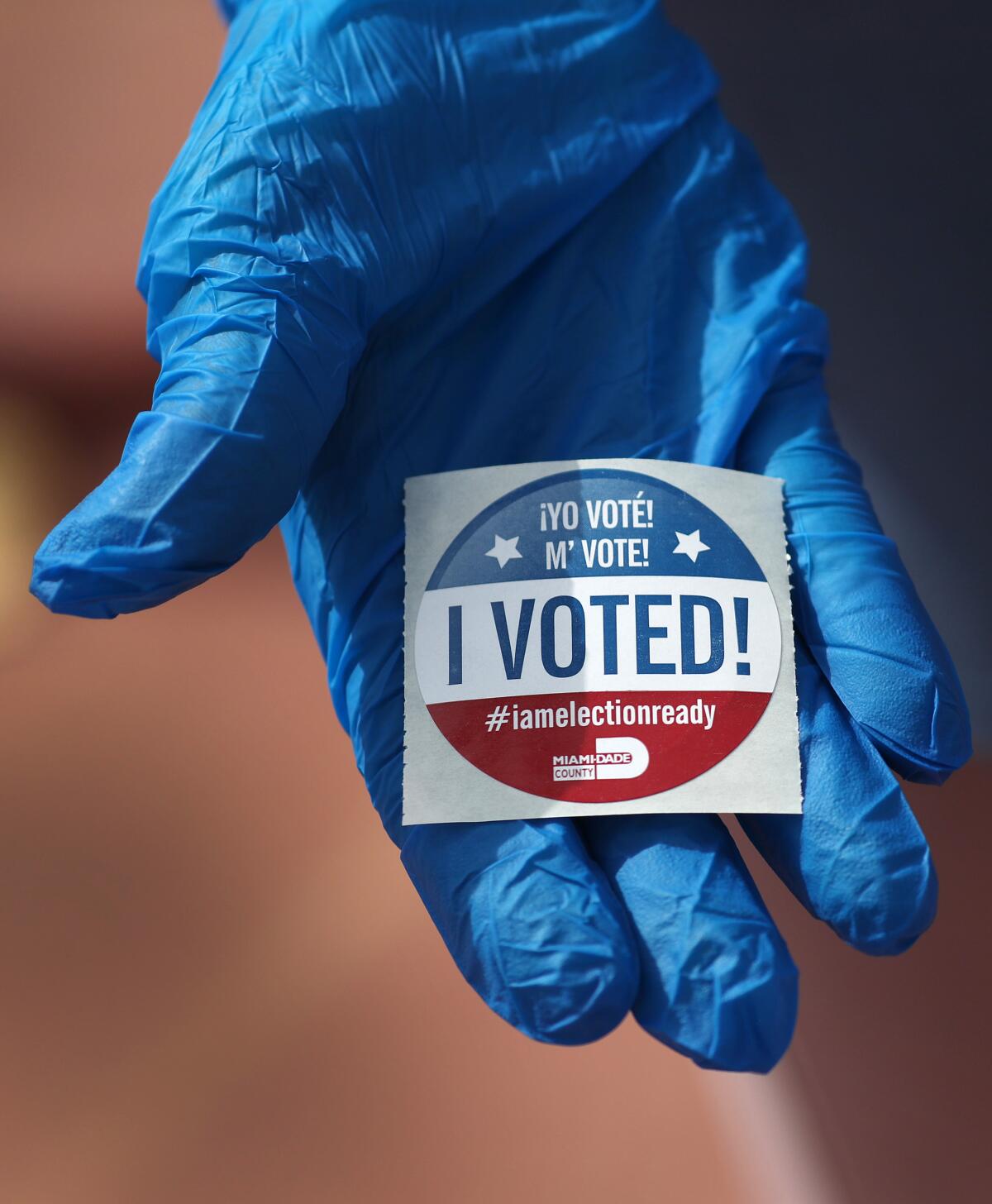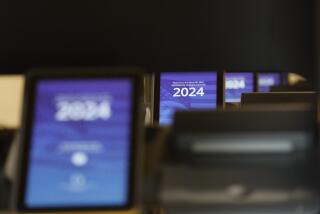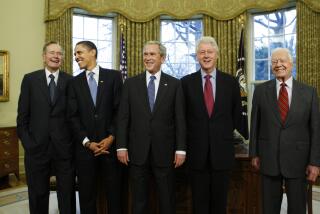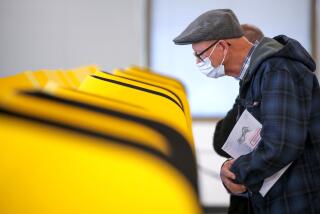Editorial: Congress has to immunize election day against fear of the coronavirus

In the days, weeks and months ahead, we can expect all sorts of dramatic disruptions as a result of the coronavirus sweeping the nation and the world. But one that Americans absolutely must begin thinking about and planning for right now is the threat the virus poses to our democratic process in a year in which voters will choose a president, a third of the U.S. Senate and the entire House of Representatives.
Several states have already postponed presidential primaries. Bernie Sanders and Joe Biden, and President Trump as well, are already rethinking what it even means to campaign at a moment in time when voters can’t come out to rallies, debates must be held virtually, and all discussion of issues from foreign policy to climate change to homelessness are subordinated to the one great concern on everyone’s mind.
Obviously — but shockingly nevertheless — there is also speculation that this summer’s party political conventions might have to be canceled or drastically scaled back.
But there is one political event that will and must go on as scheduled: the Nov. 3 general election. While prognostications about the spread — or hopefully the containment — of the pandemic are risky, it isn’t too early for Congress and state election officials to begin planning for an election that might have to be conducted under plague conditions.
The goal must be to ensure that fear of contracting COVID-19 (or transmitting it to others) won’t cause participation in the election to plummet. Even if, as we all hope, self-isolation and social distancing are no longer necessary in November, lingering concerns about contamination could easily depress turnout at traditional polling places.
That’s why a consensus has been growing that Congress and state election officials should think now about creative ways to allow voters to exercise the franchise on Nov. 3, including but not limited to a dramatic expansion of voting by mail, a convenience that is beginning to seem like a necessity, and which some states, including California, offered even before the pandemic.
Richard L. Hasen, an election-law expert at UC Irvine, proposed that Congress require the states to allow no-excuse absentee voting and underwrite that effort with federal funds. A proposal by the Brennan Center for Justice has proposed a raft of measures that it says would cost $2 billion. They include not only a universal vote-by-mail option but expanded early voting, more online voter registration and efforts to make in-person voting — an option it says must remain for voters who lack reliable postal service — hygienic.
The Natural Disaster and Emergency Ballot Act of 2020, proposed by Sens. Amy Klobuchar (D-Minn.) and Ron Wyden (D-Ore.), would require states to offer no-excuse absentee voting and provide self-sealing envelopes with prepaid postage for all voters who request an absentee ballot or voter registration application.
A relatively sudden expansion of mail-in voting would be a difficult adjustment in many states, as would be the expeditious introduction of procedures to make in-person voting safe. And a massive shift to voting by mail would require vigilance about fraud or tampering.
But all these complications fade in significance in comparison to the possibility that COVID-19 could lay waste not only to the lives and health of individuals but also to the political process. As Hasen put it: “We cannot postpone the election because there are places under lockdown. We need to have a Plan B ready.”
For such a plan to take shape, there must be bipartisan support. It’s unfortunate that Wyden and Klobuchar weren’t able to attract Republican co-sponsors. It is also a fact — one might call it the elephant in the room — that Republicans have resisted efforts to make voting easier, fearful that it will increase turnout by voters who lean Democratic.
The Senate took a modest step toward helping state election officials cope with coronavirus in its compromise stimulus bill, which includes $400 million in assistance and which is expected to pass both houses in the coming days. But that’s not enough money.
Republicans also need to abandon the hackneyed argument that leadership by Congress in this area amounts to usurpation of the states’ power to regulate elections.
It’s in the interest of both parties that this public health emergency doesn’t lead to a steep decline in voting on election day. Maximizing participation is important not only because voters have a right to cast their ballots without fear of becoming ill, but also because an election in which massive numbers of voters don’t take part can undermine the perceived legitimacy of the outcome.
If the two parties in Congress can come together, however belatedly, on legislation to deal with the threat to the economy posed by the virus, they should be able to collaborate on measures to counter the disease’s potential damage to democracy.
More to Read
A cure for the common opinion
Get thought-provoking perspectives with our weekly newsletter.
You may occasionally receive promotional content from the Los Angeles Times.






